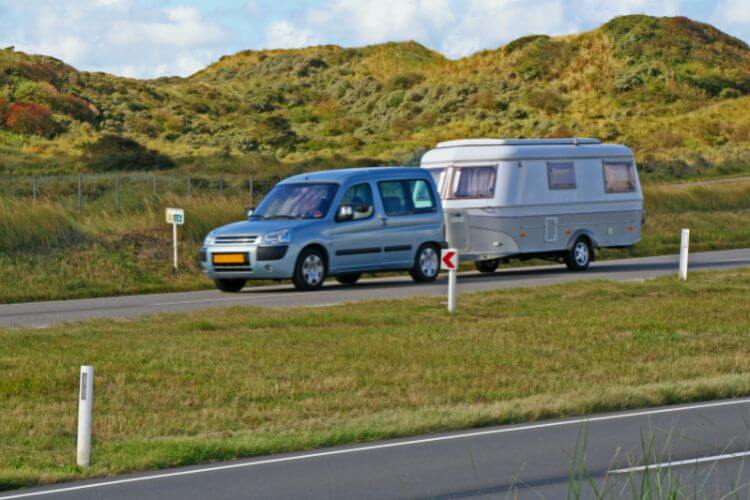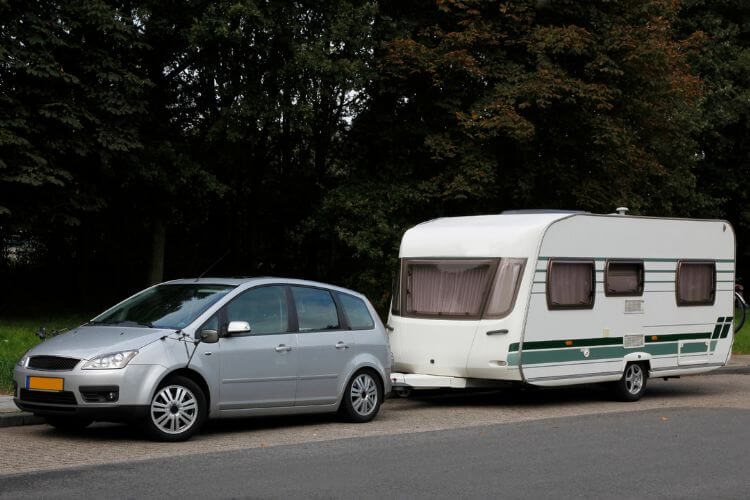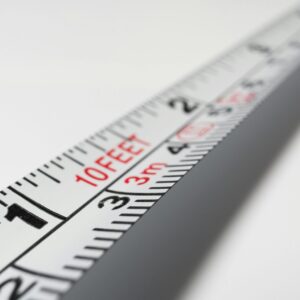The swaying of a caravan is one thing all caravan owners dread, but it is not an uncommon occurrence. While there are multiple reasons your caravan may sway or shake, there are ways to avoid or manage the situation. Read on as we discuss the common reasons why your caravan may sway and offer some helpful tips in this regard so that you can control the situation if you encounter such an instance on the road.
What are the common reasons for a caravan swaying?
Before we delve into the reasons for caravan swaying, let’s first understand what caravan sway is. Simply put, the snaking or shaking of a caravan, when it is being towed is caravan sway. This usually occurs due to the tow hitch location, particularly when it is behind the tow vehicle’s rear axle.
While it may seem trivial, caravan swaying is one of the leading causes of accidents, and it is important to keep it in control when on the road.
As suggested earlier, there are multiple reasons why a caravan may sway or swing from side to side. Let’s look at some of the most common reasons and what you can do to resolve the issue.
Uneven weight distribution
Uneven weight distribution is one of the most common causes that can lead to a caravan sway. You may not pay much heed to poor or hasty packing when getting ready to travel, but if you pack correctly, it can have a significant impact on keeping your caravan from swaying when driving.
Ideally, you must pack the heavy load as close to the axles as possible and avoid more load at the caravan’s rear end. If you pack the heavy load at the caravan’s rear, any interference during driving can trigger a swing effect, which, if not handled correctly, can increase swaying and even cause an accident.
Excessive vehicle speed

There is always the temptation to increase speed on the road and overtake other vehicles. However, gaining too much speed can lead to swaying and, eventually, an accident. Even if your vehicle is not evenly loaded, it may not cause the caravan to sway if you are driving at a slow speed. The faster you drive, the greater the chances of the caravan swaying, and it will be harder to get it under control in time.
Hence if excessive speed is the reason for your caravan to sway, you can easily fix it by slowing it down. Even if you are 100% confident in your vehicle, you must maintain a reasonable speed and be mindful when overtaking another vehicle on the road.
Inadequate tyre pressure
Tyre pressure is critical, particularly when towing, as it ensures a smooth ride. If the tyre pressure of your vehicle is too high, it will wear down the centre of the tyres and will lead to a bouncy ride, which in turn will cause the caravan to sway.
To eliminate this problem, check your tyre pressure regularly and ensure that it is according to the recommended pressure and as instructed in your caravan manual or compliance plate. When checking the tyre pressure, you must ensure that the tyres are cold to have a correct reading. To do that, you must wait for at least 2 hours after the caravan is towed.
Use a sway control device
If you want to eliminate the swaying, you can use sway control devices. However, these devices must only be used where the caravan sway usually self-corrects after swaying for a short while.
A sway device usually employs pressure-loaded friction pads to ward off the sway force energy. However, these devices are most effective when the towing speed is less. At a higher towing speed, the sway force energy will also increase and reduce the device’s effectiveness.
What can I do to prevent my caravan from swaying?

When you are on the road, there are a few simple steps you can take to reduce the caravan sway in case you encounter such a situation and prevent any major accident.
- Make small steering motions- If you feel that the caravan has started to sway, steer in small motions to rectify the sway. If you steer too quickly, it will worsen the situation.
- Slow acceleration- To reduce the trailer swaying, reduce your acceleration and slow down as soon as you feel something is wrong.
- Apply brakes gently– Do not brake too hard. Brake gently to ensure that the caravan and vehicle sway is aligned. If possible, try to apply the caravan brakes via the override on the electric brake controller.
In conclusion, although you can take a few measures to prevent caravan sway proactively, external factors can also be the reason. It is why it is critical to know the rig and know how to prevent caravan sway if it occurs when you are travelling.
How do I stop swaying when towing?
There are a few measures you can take to stop swaying when towing. For instance, to begin with, avoid loading your caravan in the rear end and do not overload the tow vehicle either. Maintain a medium speed when on the road, and apply brakes gently. If you have to steer, make small steering motions and ensure that the tyres have adequate pressure.
Can too much weight cause a caravan to sway?
Excessive weight and uneven weight distribution are the leading causes of caravan sway. For instance, if you put too much weight at the rear of the caravan, any interference during driving can cause the caravan to sway.



